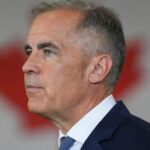In a dramatic development that has sent shockwaves through Parliament Hill, NDP Leader Jagmeet Singh announced today his party will vote against the Liberal government’s throne speech, citing its failure to address critical concerns for working Canadians. This decisive move threatens to topple Prime Minister Justin Trudeau’s minority government, potentially triggering a fall election that few political insiders anticipated.
“When Canadians are struggling to put food on the table and keep a roof over their heads, this government offers empty promises and corporate handouts,” Singh declared during a fiery press conference on Parliament Hill. “We cannot, in good conscience, support a throne speech that ignores the pressing needs of everyday workers.”
The throne speech, delivered yesterday by Governor General Mary Simon, outlined the Liberal government’s priorities for the upcoming parliamentary session, focusing heavily on economic growth, climate initiatives, and international relations. However, according to Singh, the speech contained “glaring omissions” regarding labor protections, affordable housing measures, and healthcare improvements that the NDP had explicitly demanded during recent negotiations.
Political analysts suggest this rejection marks a significant shift in the power dynamics that have characterized Canadian politics since the 2021 election. The supply-and-confidence agreement that had previously kept the Trudeau government afloat appears to have collapsed under the weight of unfulfilled promises and mounting public pressure.
“The NDP has essentially called the Liberals’ bluff,” explained Dr. Amrita Chaudhary, professor of political science at the University of Toronto. “They’re betting that standing firm on workers’ rights will resonate more with their base than continuing to prop up a government that’s increasingly seen as out of touch with working-class concerns.”
The Liberal response has been swift but measured. Government House Leader Mark Holland expressed disappointment but insisted that “the door remains open for constructive dialogue.” Sources within the Prime Minister’s Office, speaking on condition of anonymity, revealed that emergency meetings are underway to salvage the situation, potentially through last-minute concessions on pharmacare and housing affordability measures.
Conservative Leader Pierre Poilievre, meanwhile, has seized on the development as evidence of a “government in chaos,” calling for an immediate confidence vote. “Canadians deserve better than this dysfunctional arrangement,” Poilievre stated during Question Period. “It’s time to let voters decide.”
Financial markets have reacted with uncharacteristic calm to the political uncertainty, with the Toronto Stock Exchange showing only modest fluctuations. “Investors appear to be taking a wait-and-see approach,” noted financial analyst Raymond Cho. “There’s a growing sense that some form of political resolution, whether through compromise or an election, will ultimately provide stability.”
Labor unions across Canada have rallied behind the NDP’s stance. Bea Bruske, president of the Canadian Labour Congress, praised Singh’s decision as “putting workers first” and called on the government to address long-standing concerns about precarious employment and stagnant wages in an era of persistent inflation.
With the confidence vote scheduled for next Tuesday, backroom negotiations have intensified. The Bloc Québécois, holding the balance of power should the NDP follow through on its threat, has remained strategically noncommittal, suggesting potential openness to supporting the government in exchange for increased provincial autonomy and funding for Quebec.
As Parliament Hill braces for what could be its most consequential week in years, the fundamental question remains: will this political gambit result in meaningful policy changes for Canadian workers, or merely accelerate the country’s march toward another costly and divisive election campaign?

























